20180925-yawar-mw25-collection-001
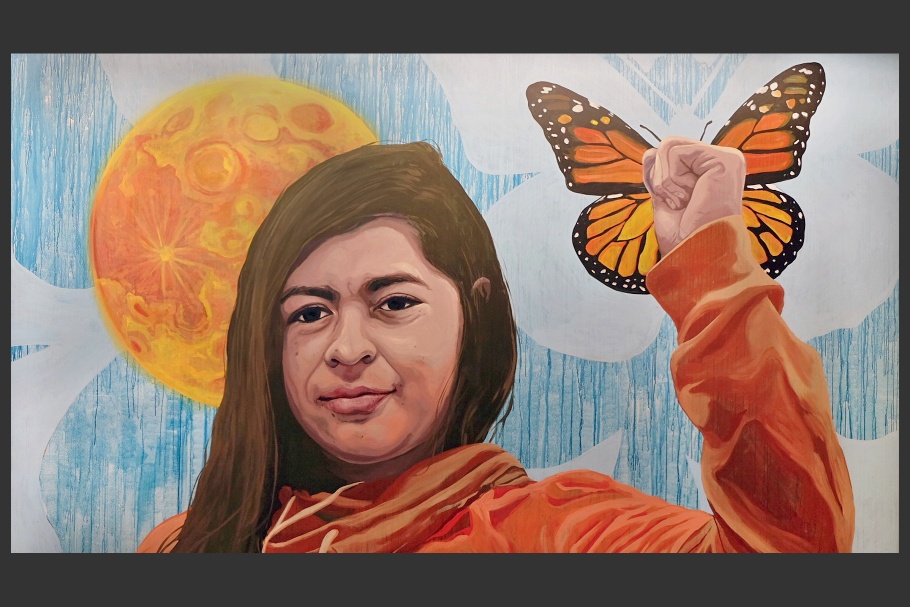
Installation view of Across la Tierra.
The Open Society Foundations, New York, New York, August 2018.
This mural was designed by Layqa Nuna Yawar in collaboration with the organization United We Dream, the largest immigrant youth-led network in the United States, which fights for justice and dignity for all immigrants. The work is based on photographs from their past campaigns and celebrates their work over the past 10 years. This painted image of a young activist will be turned into posters that will be handed out to United We Dream members at their conference and rally in Miami in late 2018, followed by a potential public mural in Miami.
20180925-yawar-mw25-collection-002
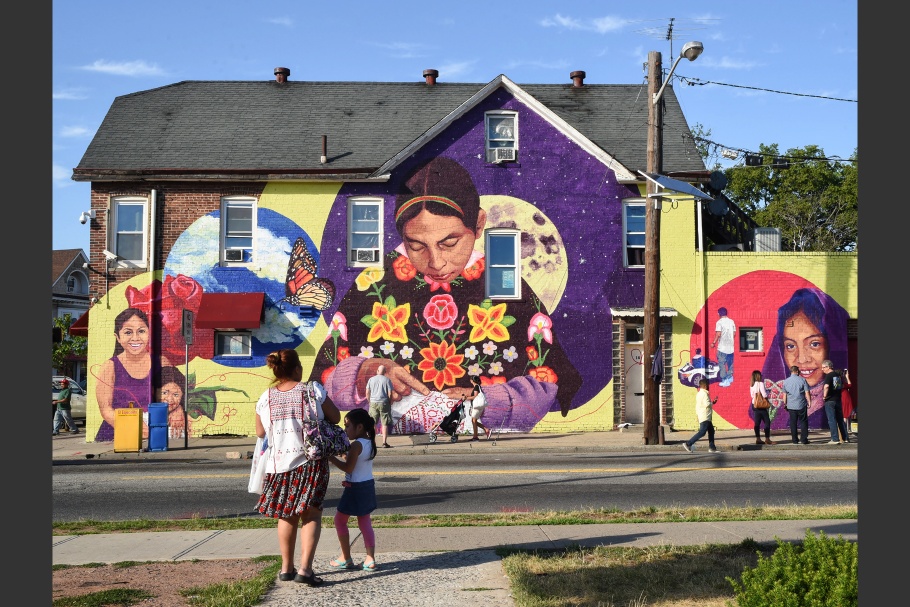
A public mural made by Layqa Nuna Yawar in collaboration with the organization Esperanza Neighborhood Project led by members of the local community.
New Brunswick, New Jersey, United States, July 2018.
20180925-yawar-mw25-collection-003
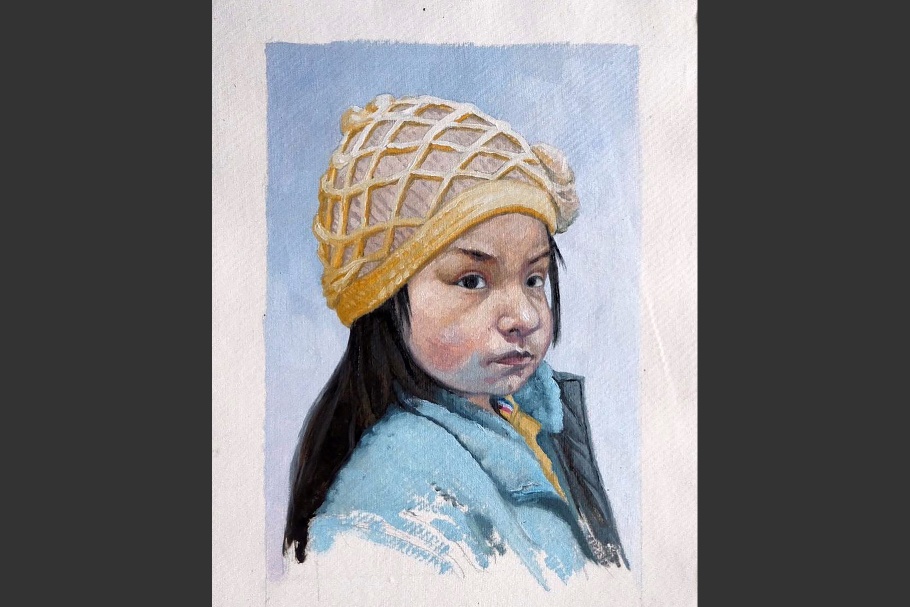
Sketches and color studies created in preparation for the Esperanza Neighborhood Project mural.
New Brunswick, New Jersey, United States, March–July 2018.
20180925-yawar-mw25-collection-004
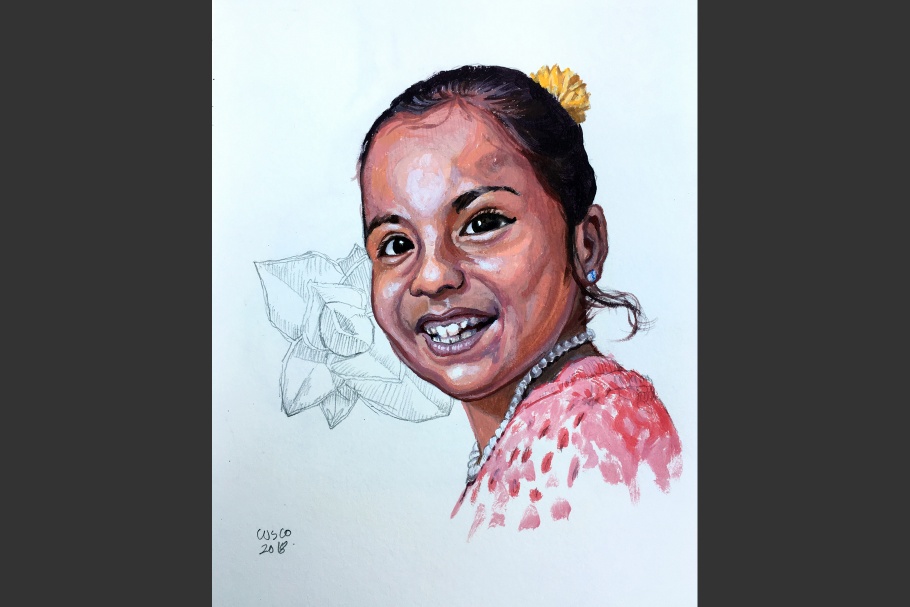
Sketches and color studies created in preparation for the Esperanza Neighborhood Project mural.
New Brunswick, New Jersey, United States, March–July 2018.
20180925-yawar-mw25-collection-005
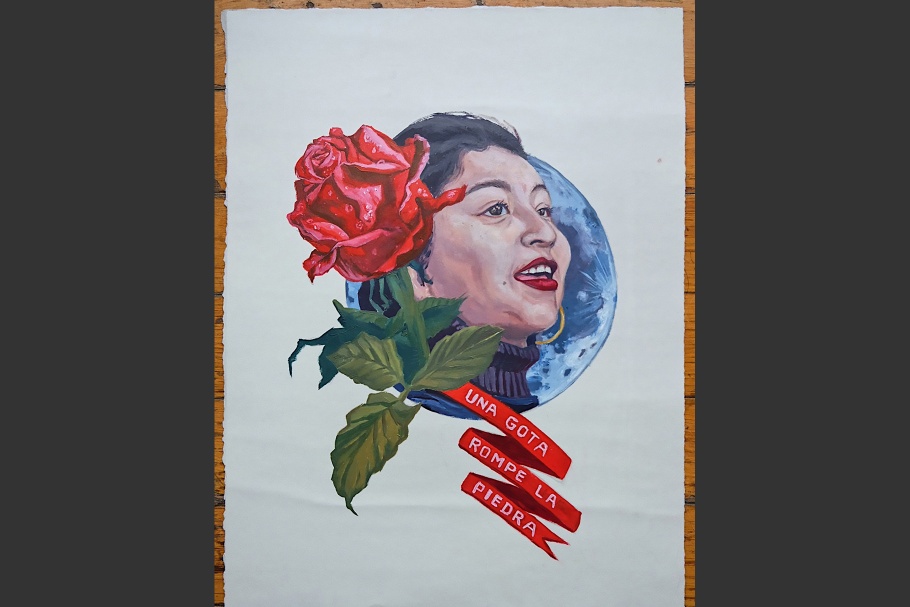
Sketches and color studies created in preparation for the Esperanza Neighborhood Project mural.
New Brunswick, New Jersey, United States, March–July 2018.
20180925-yawar-mw25-collection-006
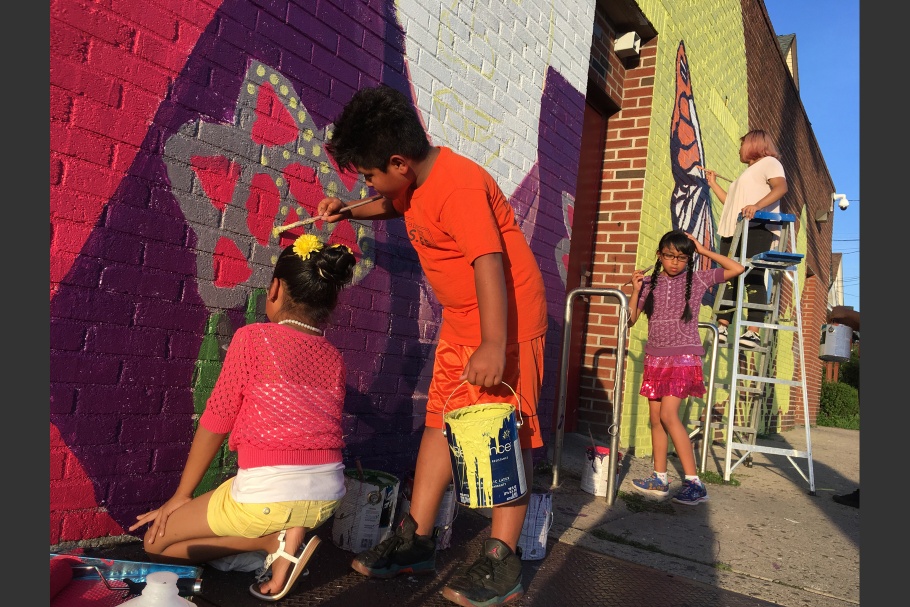
Children and community members participate in the creation of Esperanza Neighborhood Project mural.
New Brunswick, New Jersey, United States, July 2018.
20180925-yawar-mw25-collection-007
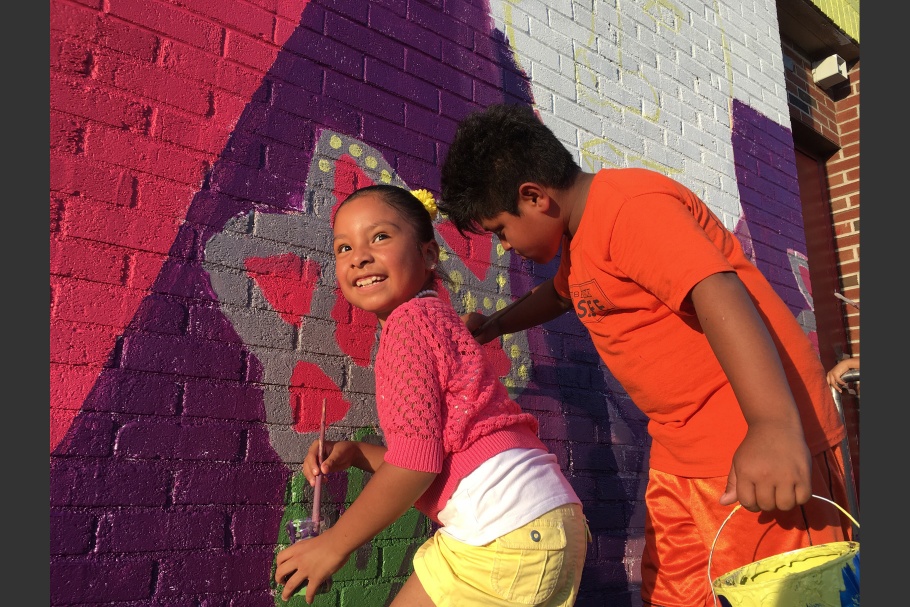
Children and community members participate in the creation of Esperanza Neighborhood Project mural.
New Brunswick, New Jersey, United States, July 2018.
20180925-yawar-mw25-collection-008
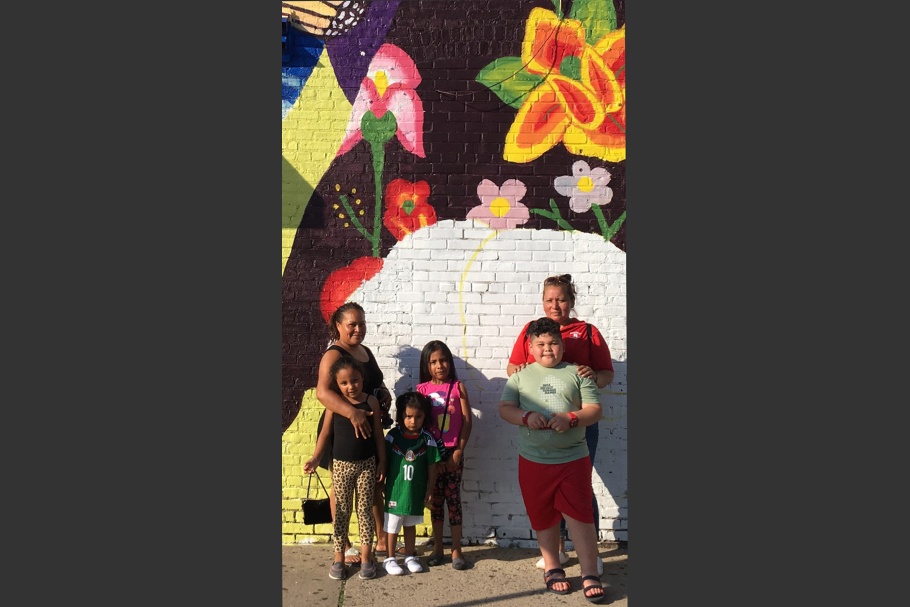
Children and community members participate in the creation of Esperanza Neighborhood Project mural.
New Brunswick, New Jersey, United States, July 2018.
20180925-yawar-mw25-collection-009
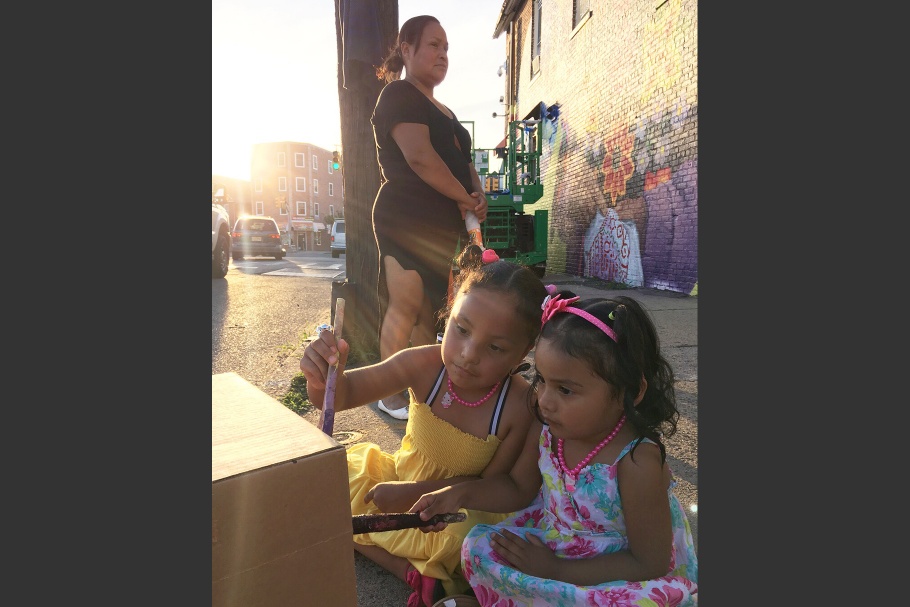
Children and community members participate in the creation of Esperanza Neighborhood Project mural.
New Brunswick, New Jersey, United States, July 2018.
20180925-yawar-mw25-collection-010
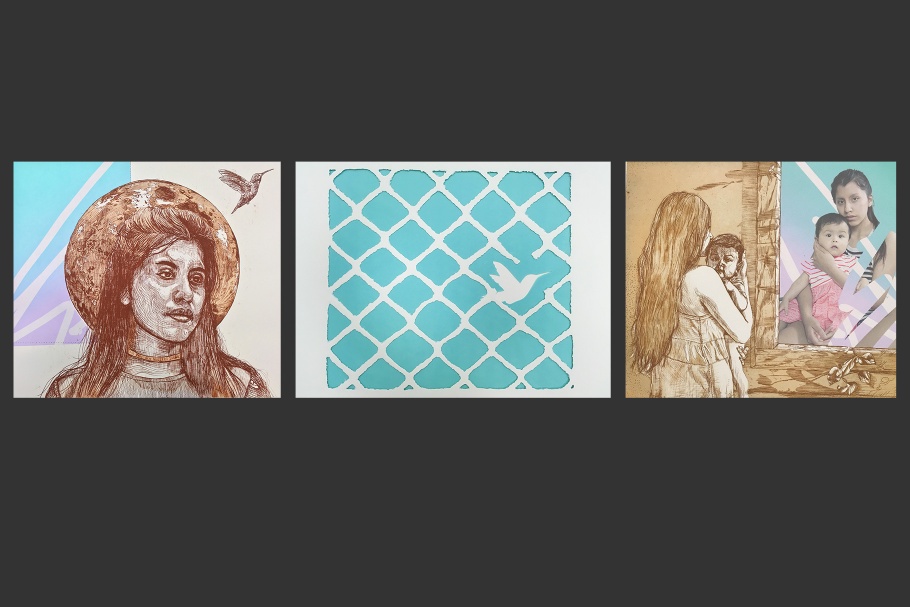
Migrant Imaginary, 2018.
A triptych made during a residency at the Brodsky Center and in collaboration with master printmaker Randy Hemminghaus and master papermaker Anne McKeown.
Layqa Nuna Yawar (b. 1984, Ecuador; lives in the United States) migrated to the United States in the late 1990s, during a period of severe economic and political instability in Ecuador. This experience framed his understanding of global migration as a necessity more than a privilege and created a sense of fracture and cross-cultural identity that informed his early street art.
Yawar’s practice now includes studio paintings, murals, installations, curation, and public art made with underrepresented communities of color. These projects’ varied goals include community celebration, climate change awareness, and city beautification. Exhibited internationally, Yawar is a founding member, teaching artist, and former curator of Young New Yorkers, a Brooklyn-based program that provides an art-based alternative to incarceration.
Layqa Nuna Yawar
As an artist, muralist, and educator, my work focuses on amplifying the silenced narratives of underserved communities, migrants, and people of color through public art and figurative representation. My aim is to foster the imagination of a brighter and more just future, while also questioning and confronting oppression, prejudice, and exploitation.
My practice is rooted in a methodology of social engagement. Each project begins with a process of identifying a shared vision for a public mural by having conversations and creating artwork—photography, drawing, painting—with and of my host communities. The end result is a piece of collaborative artwork, which may take various forms, including large scale murals and installations, paintings, drawings, sculptures, public art interventions, exhibitions (in museums, galleries, and classrooms), lectures, curation, or a mixture of some or all of the above.
My work is often ephemeral and only fully complete when viewers and stakeholders accept or engage with it in their communities. Since the artwork reflects the process and the communities that helped create it, the impact is often immediate. The artwork’s radical vision creates dialogue—or sometimes conflict—and touches people personally by offering counter-narratives of hope.
—Layqa Nuna Yawar, September 2018